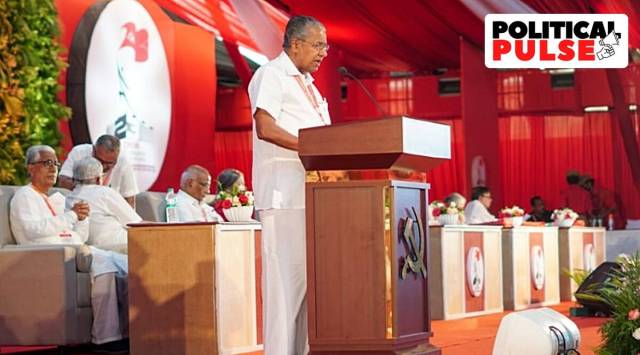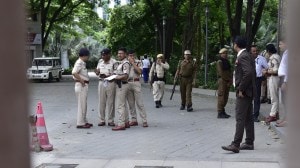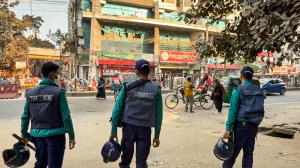KSRTC workers agreed to the longer duty hours after their salary was kept pending for two months by the LDF government. It released Rs 100 crore towards meeting the shortage in the salary bill of 25,000-odd transport workers only on the condition that they agreed to the new work conditions of 12 hours a day, six days a week, starting
October 1.

So far, the work limit was eight hours a day, a norm the Communists have always backed.
Under Vijayan, the LDF government has gone about breaking the stranglehold of militant trade unions in the state’s PSUs. The win in KSRTC is significant as it is the largest PSU in Kerala, and because its dominant trade union is KSRTEA, affiliated to the CPI(M)’s CITU.
Over the years, KSRTEA has called the shots in the heavily loss-making KSRTC, largely on the strength of the backing of senior CPI(M) leaders. KSRTEA leaders had also openly protested against Transport Minister Antony Raju over the introduction of 12-hour days.
Sources said that at the meeting held on Monday to break the deadlock, Vijayan laid down the line, telling the belligerent trade unions to agree to longer duty hours if they wanted salary arrears. Not a single CITU leader or powerful KSRTEA protested then, or later.
Earlier this year, the Vijayan government forced into line the pro-CPI(M) KSEB Officers’ Association, which controls the loss-making Kerala State Electricity Board (KSEB). When the officers staged agitation against some reforms proposed by the management, the government stood with the latter.
Story continues below this ad
In March this year, a policy draft for Vijayan’s ‘Nava Kerala’ mission, adopted at a CPI(M) state conference, called for a change in the mindset of trade unions, saying they should factor in the management’s concerns.
Again, when headload workers in Wayanad recently protested against a retail chain group, demanding sole rights to unions in unloading work, the government intervened on behalf of the group. This forced the party-affiliated unions to wind up their protest. This was in stark contrast to instances in the past when the CPI(M)’s silence in similar situations had forced investors to give in or down shutters.
Last week, Industries Minister P Rajeeve said in the Assembly that party flags should not be placed in front of industrial units, in another message indicating the government was distancing itself from trade unions.
The government recruitment policy and expenditure cuts have also taken a toll on trade unions’ health. For example, KSRTC is down from around 40,000 employees in 2016 to 25,000-odd in 2022, with the government not making any fresh appointments. Early this year, the LDF government launched a subsidiary called KSRTC-SWIFT, where only daily wagers are deployed on contract basis – a concept earlier opposed by the CPI(M). The CITU protest on the issue ended on a
whimper.
Story continues below this ad
But it’s not just the changed government stance that has weakened trade unions in Kerala. An altered market scenario has led to crisis in many traditional sectors such as plantation, coir and cashew, leaving labourers with less bargaining power. At the same time, in the fledgling sunrise job sectors, where contractual jobs are on offer, the unions have little hold.
CITU state president Anathalavattom Anandan denied that trade unions had lost out on the KSRTC issue. “The change in working hours had become necessary to save the transport entity. We have only used the provision in the central motor transport workers’ Act to spread over-duty to 12 hours. They would be paid overtime allowance. All trade unions have agreed to the change. Although the duty time is 12 hours, no crew would be put behind wheels beyond eight hours,’’ he claimed.
Congress-affiliated Transport Democratic Federation Secretary M Vincent said the CITU had been forced to stay silent even as the government had “unilaterally” imposed the 12-hour duty rule.
“CITU is silent because it is a decision of their LDF government. The new norm would put a KSRTC crew on 72 hours of duty in a week, which is illegal. The government is exploiting employees to make an entity profitable. The Act (which Anandan quotes) allows 12-hour duty only in exceptional situations. Now, the CPI(M) has made it normal,’’ Vincent said.

































